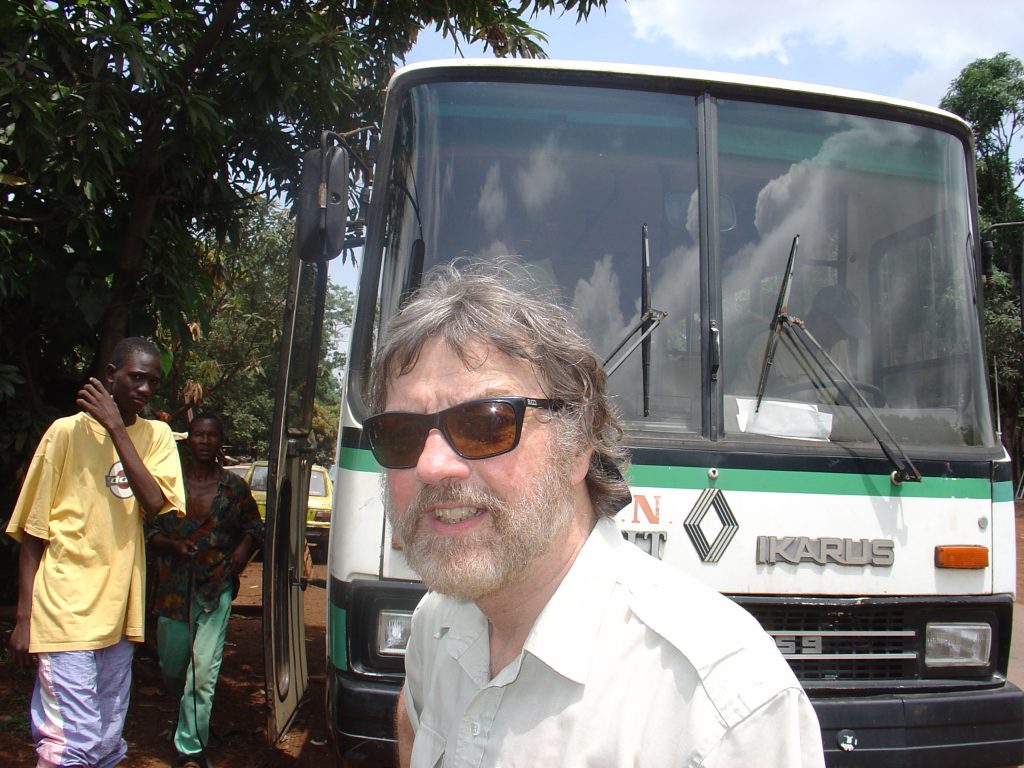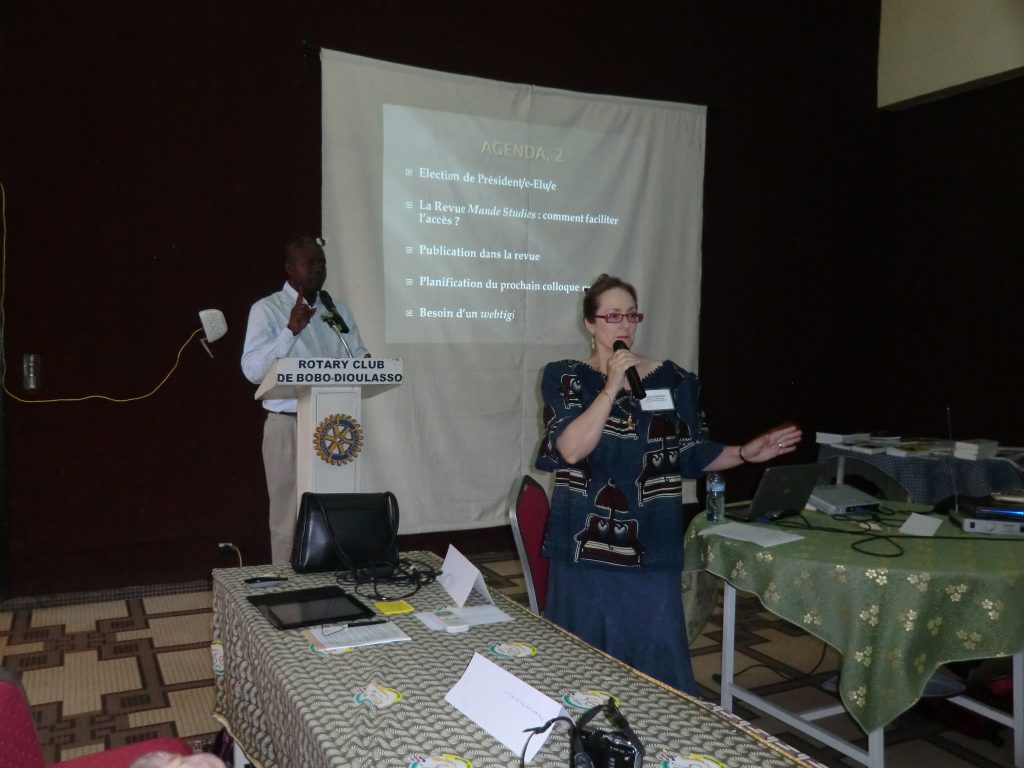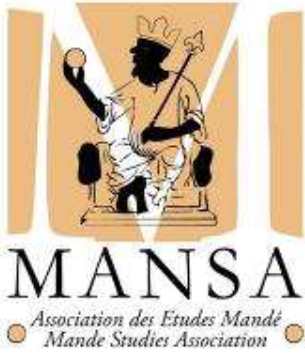The Mande Studies Association (MANSA) was founded on 1 November 1986 in Madison, Wisconsin, as an organization of scholars specializing in the study of a West African society that holds a particular fascination for those who have lived and worked with the Mande peoples in West Africa and who have become familiar with their history and culture. The Mande language term mansa meaning ‘king’ (also ‘ruler,’ ‘lord,’ ‘emperor’) was adopted to be the appropriate acronym for the Mande Studies Association. In his detailed historical narrative of the founding of MANSA, David Conrad – MANSA’s President 1986-2008 – provides context and perspective in a personal style. The initiative to found the organization emerged from roundtables organized at African Studies Association meetings in the early 1980s.
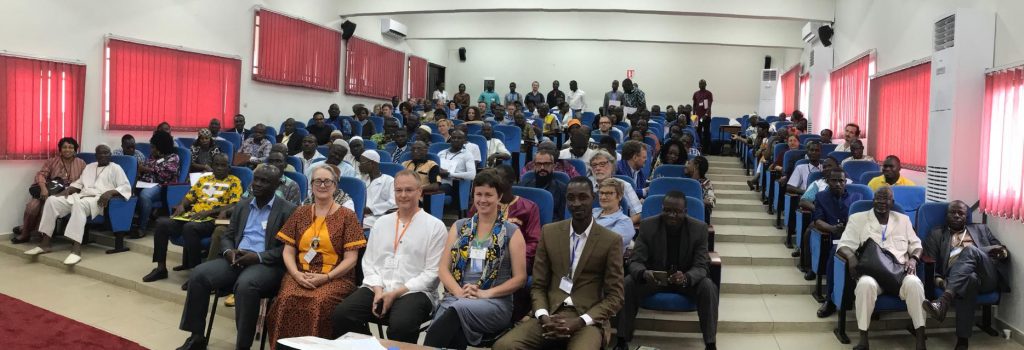
In 1993, MANSA became an Associate Organization of the African Studies Association (USA), as one of the organization’s activities was to sponsor Mande studies panels at the annual meetings of the African Studies Association. MANSA is an Affiliate Organization of the ASA.
In 1993, MANSA convened the Second International Conference on Mande Studies in Bamako (Mali). The Bamako Conference was entitled “the Second” so as to claim the legacy of the International Conference on Manding Studies that took place in London (UK) in 1972. Since the 1993 Conference in Bamako, International Conferences on Mande Studies have been convened on a regular basis: Leiden in 1995; Serrekunda in 1998; Leiden in 2002; Conakry and Kankan in 2005; Lisbon in 2008; Bamako in 2011; Bobo-Dioulasso in 2014; and Grand Bassam in 2017. In 2021, the Eleventh International Conference on Mande Studies took place in Uppsala (Sweden), as an online conference due to the COVID-19 pandemic. The Twelfth International Conference on Mande Studies took place in Bamako (Mali) in June 2024 with online hybrid sessions.
Over the years, MANSA has developed institutional ties with institutes in West Africa. In Mali, the Institut des Sciences Humaines of Bamako has long played an important role in MANSA, and many of its staff have become active members, participating in projects with their visiting colleagues, conducting their own research, and presenting papers at various international conferences. Today, the Institut des Sciences Humaines is the MANSA focal point in Mali. In Guinea-Conakry, MANSA has longstanding relations, where the Université Julius Nyerere Kankan hosts the current focal point; the Programme N'ko at the Maison des Langues of the Kofi Annan University de Guinée was the previous focal point. In Côte d’Ivoire, the current focal point is hosted by the Université Peleforo Gon Coulibaly; the previous focal point was the Laboratoire de sociologie économique et d’anthropologie des appartenances symboliques (LAASSE). The current West Africa Coordinator (Dr. Yao Marcel Kouakou) is a researcher-lecturer of history at the Université Jean Lorougnon Guédé in Daloa, Côte d'Ivoire. In Burkina Faso, MANSA has had many members at the Institut des Sciences des Sociétés (INSS) of the Centre National de la Recherche Scientifique et Technologique, but it was just a few years ago that the INSS became the Burkinabe focal point. In late 2021, the Laboratoire de Recherche sur l’Histoire et les Sociétés Africaines (LARHISA), affiliated with the Ecole Doctorale Etudes sur l'Homme et la Société (ETHOS), became the MANSA focal point in Senegal.
MANSA’s Officers and Advisory Board members have included a wide range of esteemed scholars. Current Officers are William Moseley (President), Alain Sissao (Vice-President), Marcia Tiede (Secretary), Brandon County (Treasurer), Yao Marcel Kouakou (West Africa Coordinator), and Joseph Hellweg and Patrick Royer (joint Editors-in-Chief of Mande Studies).
The MANSA Newsletter (MANSA Kibaru) is regularly published as an important membership resource. After several years of silence, MANSA Kibaru #72 covered the period 2017-20, and it has appeared annually since then.
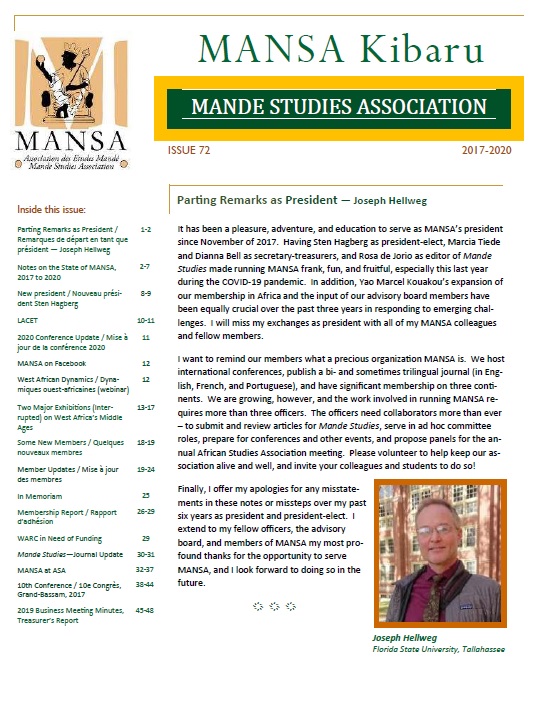
Today a new generation of scholars are engaging in the association with its network of MANSA focal points in Burkina Faso, Côte d'Ivoire, Guinea, and Mali. Yet, it is worth noting that while MANSA emerged through scholars working with the Mande peoples in West Africa, today the cultural and linguistic foci have transformed into general interest in politics, culture, religion, economics, geography, and history of West Africa at large.
